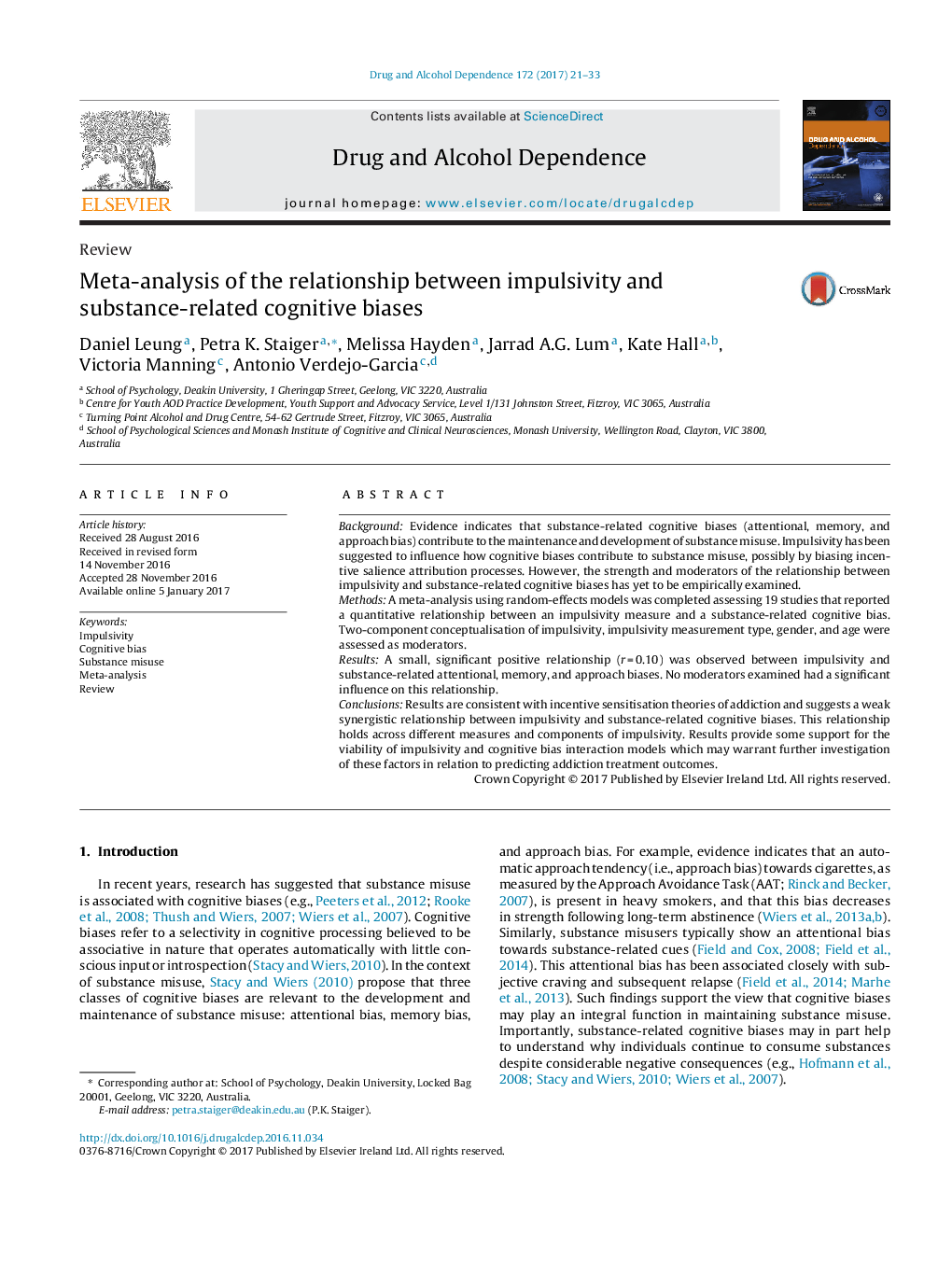| کد مقاله | کد نشریه | سال انتشار | مقاله انگلیسی | نسخه تمام متن |
|---|---|---|---|---|
| 5120100 | 1486119 | 2017 | 13 صفحه PDF | دانلود رایگان |
- Positive relationship found for impulsivity and substance-related cognitive biases.
- Relationship consistent across impulsivity measurement types, age, and gender.
- Results suggest impulsivity affects cognitive bias and substance misuse relationship.
BackgroundEvidence indicates that substance-related cognitive biases (attentional, memory, and approach bias) contribute to the maintenance and development of substance misuse. Impulsivity has been suggested to influence how cognitive biases contribute to substance misuse, possibly by biasing incentive salience attribution processes. However, the strength and moderators of the relationship between impulsivity and substance-related cognitive biases has yet to be empirically examined.MethodsA meta-analysis using random-effects models was completed assessing 19 studies that reported a quantitative relationship between an impulsivity measure and a substance-related cognitive bias. Two-component conceptualisation of impulsivity, impulsivity measurement type, gender, and age were assessed as moderators.ResultsA small, significant positive relationship (r = 0.10) was observed between impulsivity and substance-related attentional, memory, and approach biases. No moderators examined had a significant influence on this relationship.ConclusionsResults are consistent with incentive sensitisation theories of addiction and suggests a weak synergistic relationship between impulsivity and substance-related cognitive biases. This relationship holds across different measures and components of impulsivity. Results provide some support for the viability of impulsivity and cognitive bias interaction models which may warrant further investigation of these factors in relation to predicting addiction treatment outcomes.
Journal: Drug and Alcohol Dependence - Volume 172, 1 March 2017, Pages 21-33
